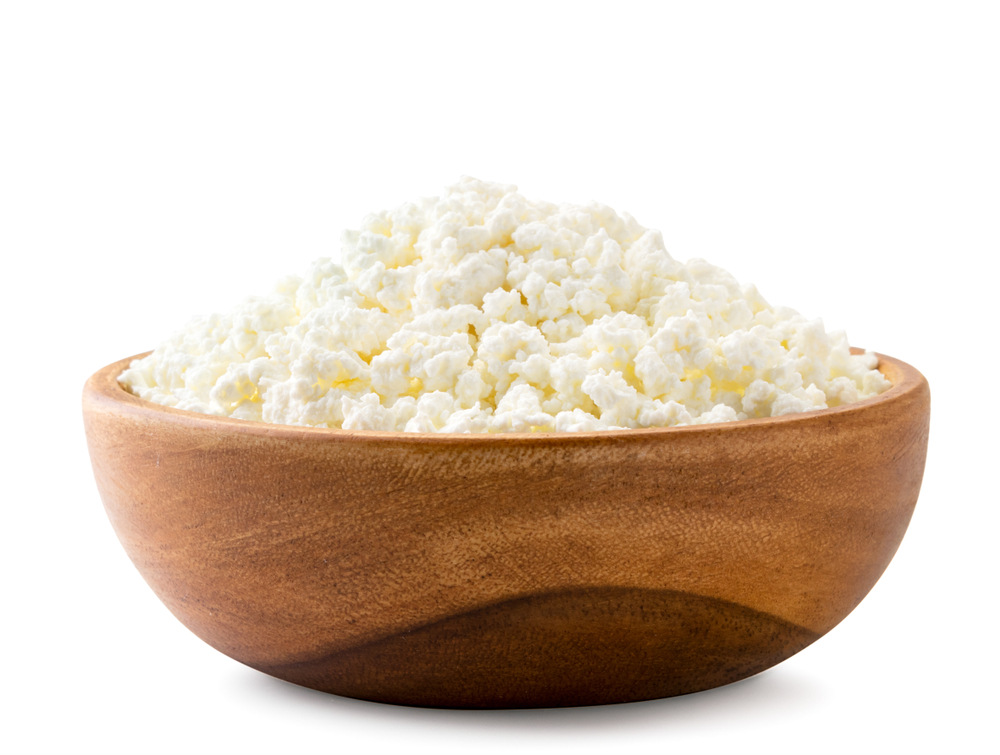The recent surge in popularity of the cottage cheese and mustard diet has sparked a fascinating conversation about the influence of social media on nutrition trends. With over 9 million views on platforms like TikTok, this seemingly simple food combination has piqued the interest of health enthusiasts and curious dieters alike. While it may sound harmless or even trendy, the cottage cheese and mustard diet warrants a closer look, especially in terms of its nutritional value and potential health risks.
The science behind the trend
At its core, the cottage cheese and mustard diet revolves around the nutritional benefits of cottage cheese paired with the tangy taste of mustard. Cottage cheese, a low-fat dairy product, is a rich source of protein, providing approximately 12 grams per half-cup serving. It is also packed with essential nutrients like calcium, phosphorus, and selenium, contributing to overall bone health and immune function. These qualities make it a staple in many balanced diets, particularly for those looking to build or maintain muscle mass.
Mustard, on the other hand, brings a burst of flavor to the combination, but with negligible calories. It’s made from seeds of the mustard plant and is typically high in antioxidants, such as selenium and omega-3 fatty acids, which support inflammation reduction. Its role in the diet is to enhance the taste without adding significant energy density or fat, a bonus for those aiming to reduce calorie intake. Together, these two ingredients form a diet trend that’s easily accessible and simple to prepare.
Nutritional analysis
When examined through a scientific lens, the combination of cottage cheese and mustard can be considered a protein-rich snack that supports several health goals. The protein in cottage cheese contributes to muscle maintenance, appetite control, and metabolic function, which are vital for those seeking weight management or muscle-building goals. However, it is important to consider the limitations of this diet.
One of the most significant concerns is the lack of variety in the food choices. While cottage cheese provides a good source of protein and mustard offers a bit of flavor and antioxidant support, there are few other food groups represented. Raw vegetables are often included in variations of this diet to add fiber and micronutrients, but this still leaves many important vitamins and minerals underrepresented. The diet lacks a sufficient amount of healthy fats and carbohydrates, which are crucial for a balanced, sustainable eating plan.
Additionally, if someone were to adopt this diet for an extended period, there could be a risk of nutritional deficiencies due to the restrictive nature of the combination. The absence of fruits, whole grains, and healthy fats means that key nutrients such as vitamins A, D, E, K, and essential fatty acids may be inadequately supplied.
Health implications
While the cottage cheese and mustard diet may be appealing due to its simplicity and focus on protein, there are important health implications to consider. One concern lies in the high sodium content found in both cottage cheese and mustard. Many commercial brands of cottage cheese, particularly those with lower fat content, contain added salt to enhance flavor and texture. Mustard, too, often contains a significant amount of sodium. Excessive sodium intake has long been linked to high blood pressure and an increased risk of cardiovascular diseases, especially in individuals who are already at risk for these conditions.
Another potential issue with this diet is its reliance on raw vegetables, which may cause digestive discomfort for some individuals. While raw vegetables are an excellent source of fiber and nutrients, they can be harder to digest for sensitive stomachs, leading to bloating, gas, or other gastrointestinal issues. If the diet includes a high intake of raw vegetables without proper preparation or balance, it could reduce long-term adherence and may lead to digestive imbalances or deficiencies.
Social media impact on nutrition
The viral nature of the cottage cheese and mustard diet raises broader concerns about the role of social media in shaping modern eating habits. Social media platforms have become powerful influencers in the world of nutrition, with trends like this one spreading rapidly among users seeking quick fixes or novel diets. While such trends can lead to a surge in interest about certain foods and health practices, they often lack the scientific backing required for long-term sustainability.
The cottage cheese and mustard diet, like many viral trends, may appeal to people seeking easy and immediate results. However, it is important to recognize that nutrition science emphasizes balance, variety, and sustainability. Following a restrictive diet based on a social media trend may be tempting, but it is essential to consider the long-term effects on health and well-being. Without proper understanding and balanced food choices, such diets can lead to nutritional imbalances and health complications.
Creating sustainable health habits
For individuals looking to improve their health through diet, nutrition science consistently highlights the importance of diversity. A well-rounded approach that incorporates a variety of food groups—fruits, vegetables, whole grains, lean proteins, and healthy fats—ensures that all nutritional needs are met. Adopting a balanced diet that prioritizes whole foods and minimizes processed or overly restrictive patterns supports optimal health in the long term.
If you’re considering a diet plan that includes cottage cheese and mustard, it’s important to remember that, in moderation, these foods can certainly be part of a healthy eating routine. However, the best approach to nutrition is one that embraces balance and flexibility, with room for enjoyment and occasional indulgences. Focusing on holistic, long-term health goals rather than quick fixes will yield more sustainable and lasting results.
In conclusion, while the cottage cheese and mustard diet may offer some benefits in terms of protein intake and convenience, it’s crucial to weigh its limitations and potential risks. As with any viral trend, it’s important to approach it with a critical eye and an understanding of broader nutrition principles. Sustainable health habits are built on balanced diets that nourish the body with the full spectrum of nutrients it needs for vitality and long-term well-being.














